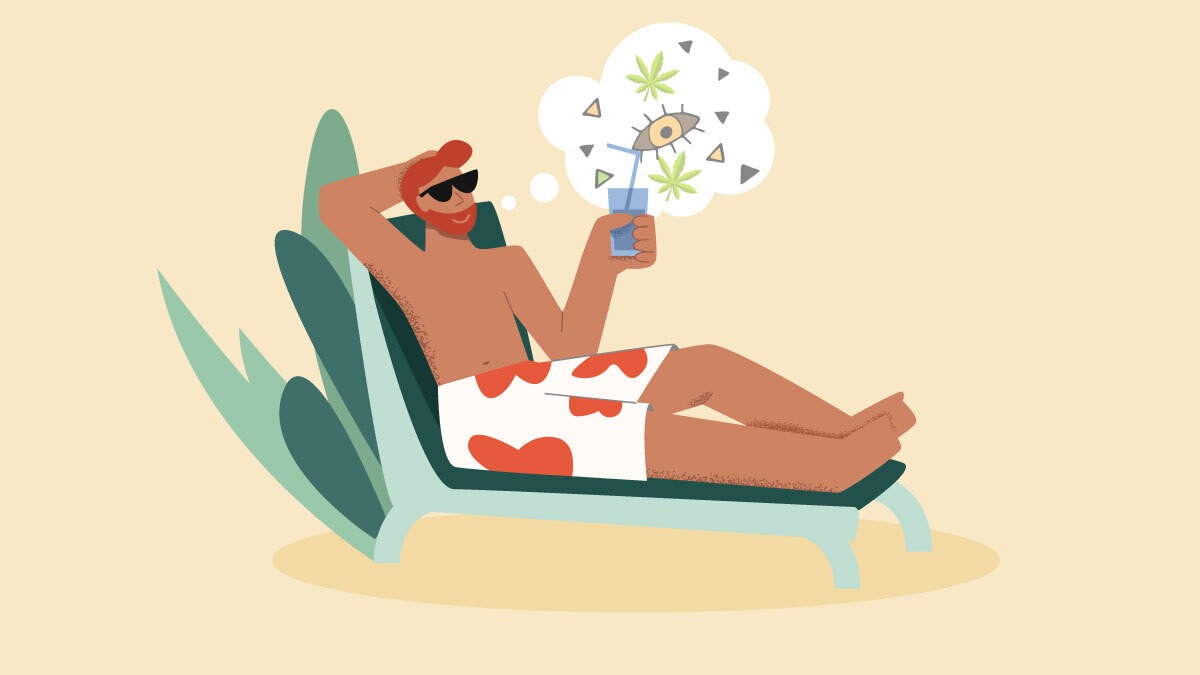Are you worried that consuming CBD will get you high? Don’t worry — we’re here to put your mind at ease.
Cannabis and all its derivatives have been strictly regulated (if not completely prohibited) around most of the world until very recently. This is primarily due to its psychoactive effect — also called being ‘high’ or ‘stoned’ — when consumed.
However, this effect is caused by a separate compound called tetrahydrocannabinol (THC), not cannabidiol (CBD).
The short answer to the question, “will CBD get me high” is resounding no.
In this article, we’ll explain in full why CBD can’t get you high and how to tell which products may have psychoactive effects.
Quick Answer: Why CBD Won’t Get You High?
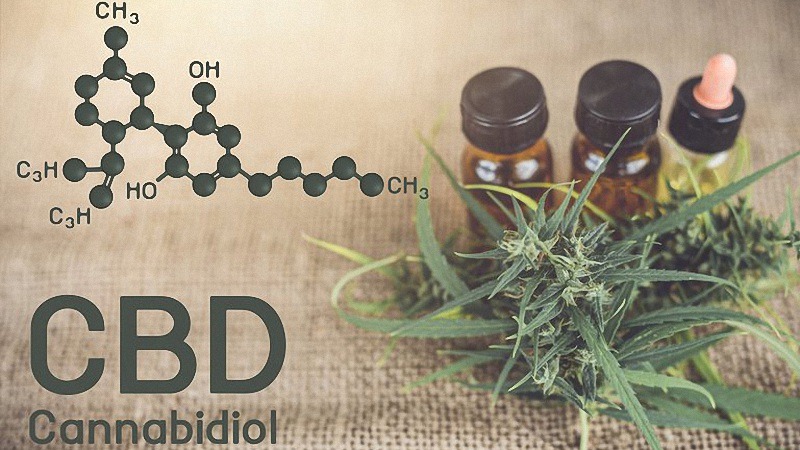
CBD should not be confused with THC — the latter being the cannabinoid responsible for the psychoactive effects felt after consuming marijuana.
CBD has been shown to have multiple positive cognitive effects, with the consumer often experiencing feelings of peacefulness and relaxation. It can even be used to directly treat stress- and anxiety-related disorders. However, it does not bind to the brain’s CB receptors as THC does, and the outcome is totally different from the ‘stoned’ or ‘high’ feeling associated with marijuana use.
Under federal law, CBD extract cannot contain more than 0.3% THC — which is nowhere near enough to get you high.
What’s the Difference Between THC & CBD?
CBD and THC are not to be confused. There are some stark differences that, once explained, will make the distinction clear.
Let’s start with some background information about the endocannabinoid system (ECS).
The ECS has the primary function of promoting homeostasis (balance) throughout the entire body. It does this through the regulation of various biological processes and systems, including the digestive system, the immune system, the central nervous system, and the cardiovascular system. It also protects organs from toxicity damage, inflammation, and infection. Moreover, ECS plays a part in multiple cognitive processes, such as pain sensation, appetite, memory, sleep, and mood.
Some experts refer to the ECS as “the bridge between the body and the mind.”
So How Does THC Get You High?
When THC enters the body, it binds directly to primary cannabinoid (CB1) receptors in the brain and spinal cord, which produces different cognitive and physical effects on both the brain and the body, respectively. It can influence pain perception, mood, appetite, and memory, among others, with users often feeling very relaxed, tired, and/or euphoric. This is the ‘high’ commonly associated with marijuana.
CBD, conversely, is not able to directly activate the CB1 receptors. Instead, it interacts with the ECS by modulating the receptors and encouraging the production of our naturally-occurring endocannabinoids.
CBD may also boost levels of gamma-aminobutyric acid (GABA) in the body — which is a neurotransmitter responsible for relaxation. When we become mentally overstimulated, GABA activity increases to lower blood pressure and slow the heart rate, which effectively relaxes and de-stresses the body and mind.
How Does CBD Make You Feel?
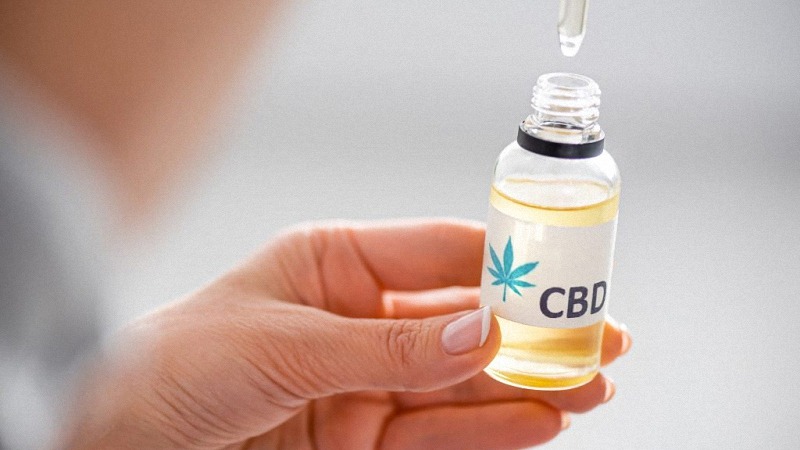
Despite promoting feelings of relaxation and peacefulness, the effects of CBD are nothing like the high experienced after consuming THC. This is because CBD does not directly bind to the CB1 receptors as THC does.
It’s common for people to feel the following after consuming CBD:
- Relaxed physically (CBD can relieve muscle tension)
- De-stressed and less anxious
- Calm and peaceful
- Free from pain (CBD can have analgesic properties)
- Focused
Is CBD Psychoactive?
This is a tricky question. The Merriam-Webster definition of psychoactive is “affecting the mind or behavior” — and while CBD can’t get you high, it doesn’t necessarily mean that it’s completely non-psychoactive.
Let’s look at THC first as a benchmark. There’s no question that, when consumed, it affects the mind (hence the terms “high” and “stoned”), and studies have shown that it can also affect behavior. For example, heavy use can increase anxiety, which can cause the behavior to alter, and long-term chronic use can even induce psychosis in some cases. It’s also widely accepted that it can cause changes in motor skills and sensory perception.
CBD certainly affects the mind. As we’ve already explained, it can promote feelings of relaxation, reduce anxiety, and boost mood. It’s also been shown to encourage the production of serotonin in the body, which can lead to feelings of happiness. It could be argued that this can cause the consumer to, therefore alter their behavior — which would make it psychoactive by definition.
However, there’s no doubt that its psychoactive effect is completely different to that experienced after consuming THC.
Do Some CBD Extracts Contain THC?
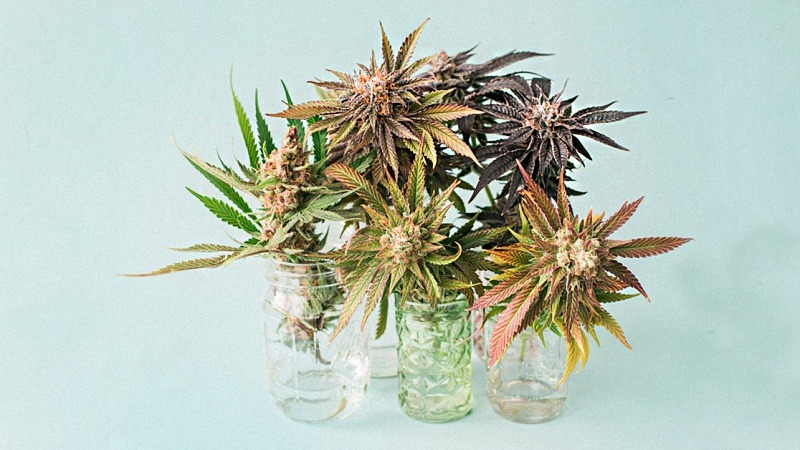
It’s important to note that there are different “types” of CBD available on the market. A CBD isolate will have been isolated in a laboratory from all the other compounds contained in the cannabis plant, so you know you’re consuming pure CBD only.
Broad-spectrum CBD contains isolated CBD that’s been mixed with other cannabinoids and/or terpenes in a laboratory (for example, CBD may be mixed with CBDA, CBG, and CBC, as well as the limonene terpene for flavoring). Although broad-spectrum CBD extracts sometimes contain THC, most often, they do not.
Full-spectrum CBD, however, contains everything found in the cannabis plant, which obviously includes THC. This is generally the preferred type of extract, as consuming all the matter in the plant together has one key benefit: the entourage effect. This is a natural phenomenon that occurs when all the compounds work in synergy to deliver the maximum benefits possible. Synergy in plant medicines is a medically accepted concept, and cannabis is no different.
But there’s no need to worry — it’s possible to consume a full-spectrum CBD extract without worrying about THC’s psychoactive effects. This is where the legality comes into play — and it’s less complicated than it sounds.
What’s The Legal Limit of THC?
In the US, although restrictions vary according to state law, federal law stipulates that any extract with a THC content of over 0.3% is illegal. This is the same in many other parts of the world.
Hemp-derived CBD will never contain more than 0.3% THC. And levels of THC this low will, in no way, get you high — even if you consume a high dose of your full-spectrum CBD extract.
Unfortunately, the CBD industry is fairly loosely regulated — primarily because it’s still in its relative infancy — so there have been some cases of CBD extracts being found to contain levels of THC higher than the legal limit. If you were unfortunate enough to consume a CBD product containing a healthy dose of THC, there’s a good chance that you may feel the psychoactive effects.
Luckily, there’s a simple way to ensure this never happens. The top-quality CBD companies get all their products tested by an independent third-party laboratory at various stages of production. This will determine the exact cannabinoid content and check for impurities and contaminants.
Up-to-date results and corresponding Certificates of analysis should be easy to access when making a purchase — and if they’re not, move on to the next company.
Are There Any CBD Oils That Can Get Me High?
Yes — if it contains high levels of THC.
With an increasing number of US states legalizing marijuana for recreational as well as medical use, marijuana-derived CBD extracts containing THC at a concentration of over 5% are becoming more common. These will almost certainly get the user high.
It’s important to always check the THC content on the bottle before you buy — even if you live in a state where THC products are prohibited. It’s better to be safe than sorry.
Final Thoughts: Will CBD Make Me Feel High?
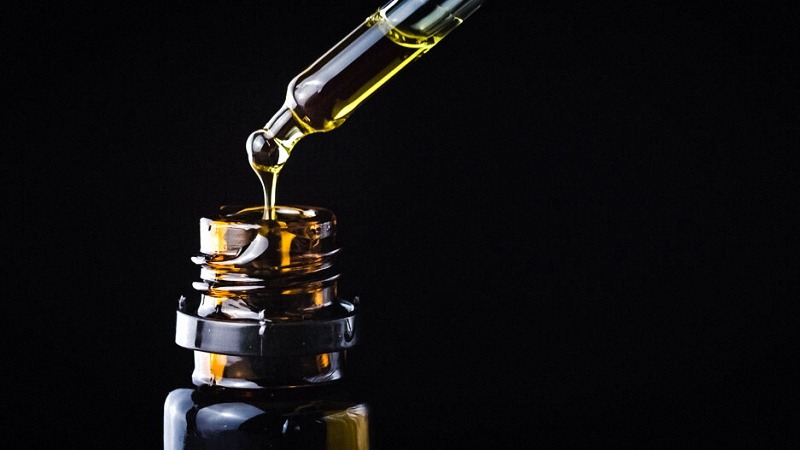
CBD is not to be confused with THC in terms of its psychoactive effects.
However, both are compounds naturally found in the cannabis plant that interact with the human body — both physically and mentally — so it’s understandable that people often struggle to understand the difference.
Although it’s likely that consuming CBD will promote relaxation and peacefulness, this is solely through stimulation of CB1 receptors that are part of the ECS, which is responsible for both physical and mental well-being. It definitely won’t get you high — providing the THC levels in the extract you consume are under the legal limit of 0.3%, which they will be if it’s hemp-derived.
Always check your bottle of CBD supplements to confirm it’s either THC-free or contains less than 0.3% THC by weight. This is the only way to ensure the products you’re using won’t make you high.

